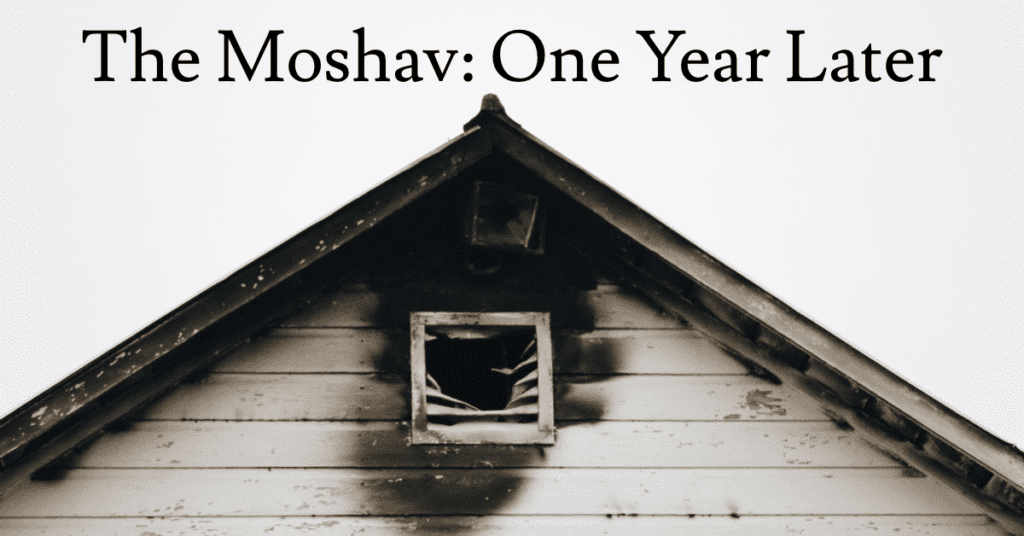Table of Contents
Just a bit over a year ago, we were all hit with the devastating news that our precious Moshav was demolished in a relentless fire. The place many of us had been to so many times, where we had more heartwarming experiences than we could count, was reduced to piles of ashes.
And heartbreak.
Yes, a few houses remain. And a few folk are camped out in what’s left. But there is plenty more work to be done, and more than enough reasons to be worried.
The Moshav: Concerns on top of Concerns
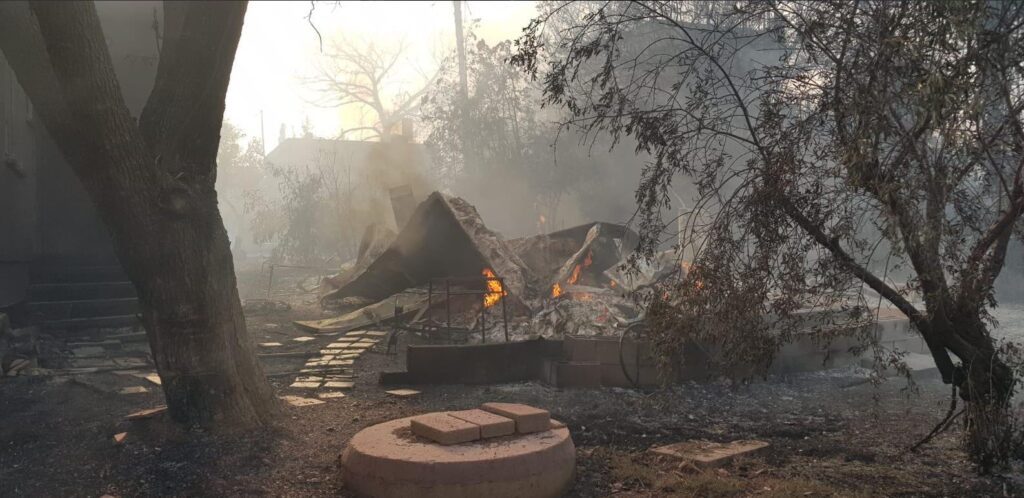
Personally, I am concerned for a number of reasons. I have so many friends and family who call the Moshav home, and I fear that what’s being done is either not enough, or certainly not at a pace that inspires confidence. And the longer this saga continues, the easier it will be for everyone, including Moshav residents, to just move on with their lives. Nevertheless, the dream of finally “going home” remains powerful and vibrant. As it should!
But I also worry that in such challenging times, it can become harder and harder to focus on such relatively small circumstances. The world is so hyper-focused on the Coronavirus, how easy would it be to just set aside plans to assist a handful of displaced followers of Shlomo Carlebach?
Finally, I cannot and will never forget Gush Katif. Thousands of Israelis were forcefully removed from their homes in what was one of the greatest governmental blunders in the country’s history. Yet, we almost never seem to talk about it anymore. We don’t focus on those who lost their homes and businesses. We don’t talk about the hurt and pain of watching someone’s childhood community turned into rubble by the very people who promised to protect them.
Forgetting is Too Easy
No, forgetting is easier. For months Gush Katif was the only thing we could talk about. And again, we all lamented the loss of Moshav Mevo Modiin for weeks and weeks. But that was then. And this is now. People are still hurting. The community is by no means restored. And there’s work to be done.
I’m writing this post to remind everyone. To make sure we don’t forget that members of our family are still in pain. They need us to know we still care. And they still need our help.
The Moshav: A Year Later
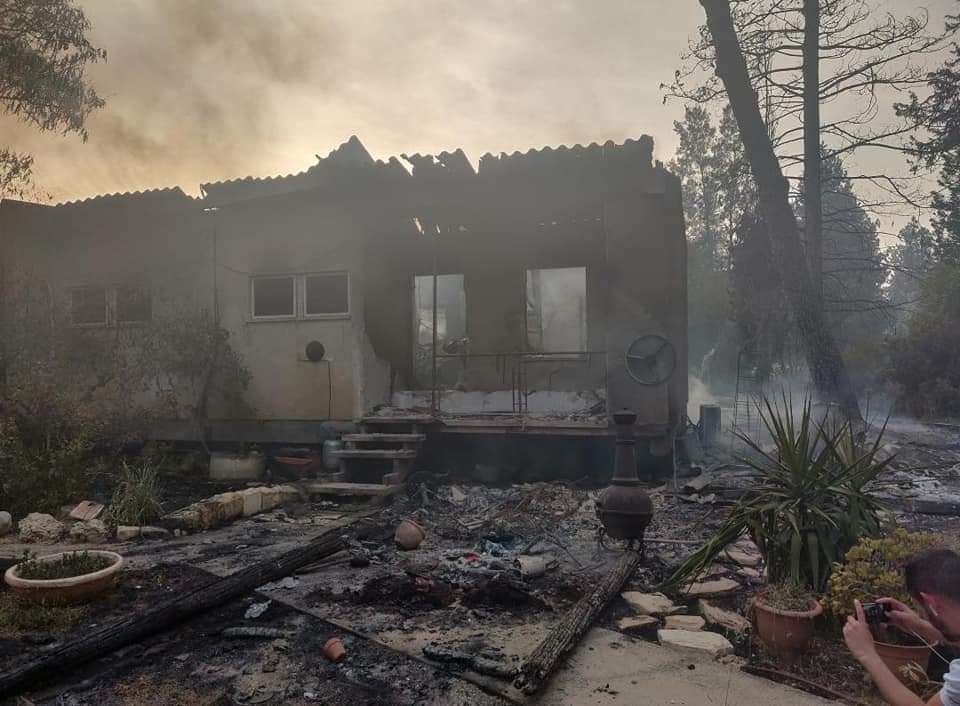
The past year has been one of utter turmoil for residents of the Moshav. For certain, many have done countless things to assist those in need. But the troubles have been countless.
Residents were first placed briefly in a community called Yad Binyamin, mainly established by former members and evacuees from the aforementioned Gush Katif. After a few weeks, they then spent the next several months living in a community called Chafetz Chaim. They are forever grateful that they were never homeless, the government handled the costs of housing and food, and that they were welcomed in during their time of need.
“No other country would have done as much, I am proud to say,” says Mordechai Gess, a Moshav member and resident for 41 years. “From day one they got into gear.”
This sentiment was echoed by everyone I interviewed. A tremendous amount of work was and has been done to assist those in need.
A Nightmare is Still a Nightmare
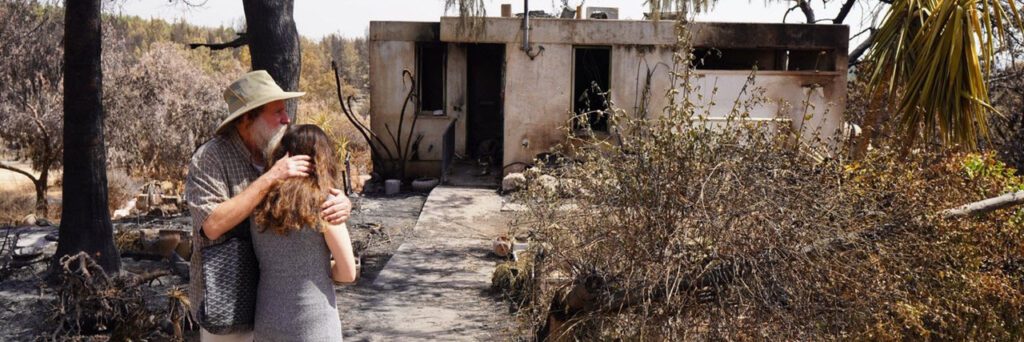
However, the nightmare was still real and present. They weren’t living in their homes, strongly missed the comfort of their worldly possessions, and struggled with uncertainty. Chafetz Chaim was by no means the final stop of their journey. And despite hospitality and rent subsidies, the worries and troubles never took a rest.
How long would they be living in strange places? What’s coming next? Will they ever return to their precious Moshav? If so, when would this happen? What would it look like? Would their lives ever have some semblance of normality again? What would be the long-term impact on the character of the Moshav?
Where is the Moshav Now?
So what has this previous year looked like for the Moshav itself?
Some houses were miraculously spared by the vicious flames. Nevertheless, those homes remained with electricity for the next seven months! When they finally could, residents whose houses still stood excitedly returned home.
What did they find?
Hope.
And promises.
And a great deal of neglect.
The remains of the houses destroyed by the fire still stood. And a year later, they still have not been demolished. The water pressure remains low. And the temporary housing units that have been promised have not yet arrived.
Painstakingly Slow
“I will feel a lot more confident and relaxed once I see the caravans,” says Shira Shapiro, “so that I know we have a place to go back to, even if it is just another temporary stop on the way to rebuilding our homes.” Shira grew up on the Moshav since age 4. At the time of the fire, she was living there with her two children on a home built on top of her mother’s.
Even the burned, dead trees on the Moshav took an entire years to be removed. Little by little, the beautiful community is being restored. But the process is painstakingly slow.
The Moshav and Pure Unconditional Giving
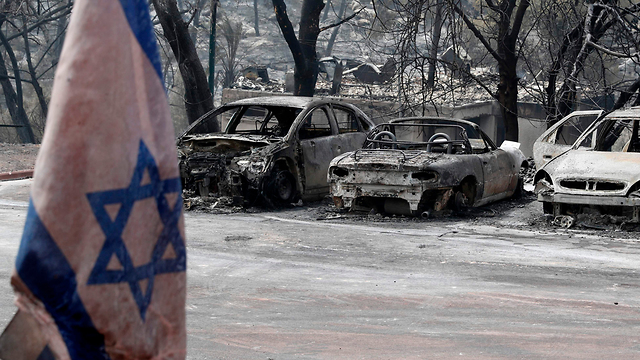
But housing and food are not the only concerns one has when a community burns to the ground. And as much as the government can and did help, it’s the outpouring of support from more directions than you can count that can make this tragic story sometimes sound almost like a fairytale.
When word got out that our beloved second home finally needed all of us to give back, people from around the world reached into their hearts (and pockets) and stepped up to the plate. What we all witnessed were “truly amazing acts of pure unconditional giving”, according to Gess. “Thousands of messages of concern and love have been pouring in ever since,” says Avraham Arieh Trugman, one of the founding Moshav members in 1976.
The stories are nothing short of inspiring, reminding everyone that in our darkest times, opportunities to make the world a better place shine a beautiful light on how great humanity truly can behave. The efforts to help were extensive and came from every direction imaginable. Residents were in awe at “the tremendous outpouring of love, support, and donations from our friends and family all over the world, as well as from complete strangers,” says Shapiro.
Alifa Saadya, a resident and member since 1980, stated that she is “humbled by the extraordinary kindness that has been shown to us.” Assistance came from businesses, who offered discounts to Moshav residents. It also came from organizations, such as the International Fellowship of Christians and Jews, which was gracious and generous in every way imaginable.
The Best of the Best
But probably the most heartwarming stories are about the individuals who gave and gave. Countless contributed whatever and whenever they could. Bracha Sprung, a former spokesman for the Mayor of Jerusalem, repeatedly used her government contacts in every way possible. She was and continues to be a tremendous support to the community.
And then you have people like Tova Hametz, who placed her life on hold to go above and beyond to help in ways that are hard to even fathom.
Shapiro says of Tova that “she spoiled us at a time when we felt homeless and so broken. She helped fix us by sitting with us and laughing with us. She never needed to be told what we needed, she just knew. She knew how to help every single one of us in our most dire time of need. There is no way I could ever even express how grateful we all are for her.”
The Future of the Moshav
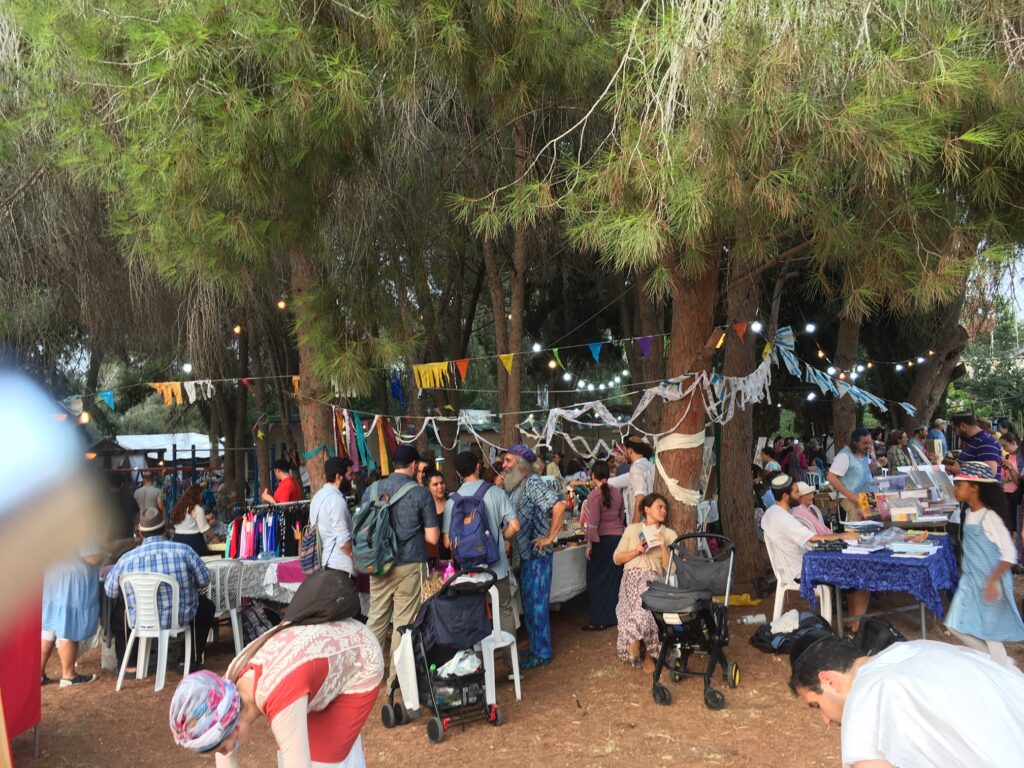
The future of the Moshav is unclear. Currently, there are about twelve families living there. There have been numerous occasions in which residents have gotten together, keeping the community feel alive and well. The plan is for 25 caravillas to be added mid-August so residents could move back home while their houses are rebuilt.
The world of the Moshav crumbled, but is being pieced together ever so slowly. But we are not out of the woods yet, and our Moshav brethren can still use our help, care, and attention. Obviously financial support remains vital as well. Keep the Moshav in your thoughts and prayers, and when the time comes, please continue going to the Moshav’s festivals and other events.
The Moshav was there for so many of us, for decades. The time to give back was a year ago. But sadly, the time to give back is still now as well. Please never let the Moshav leave your thoughts. And don’t rest until we’re all dancing there together once again.
The Moshav was there for so many of us, for decades... Never let the Moshav leave your thoughts. And don't rest until we're all dancing there together once again. Share on X


